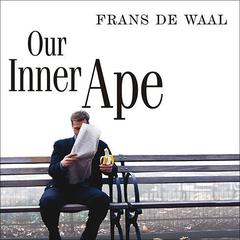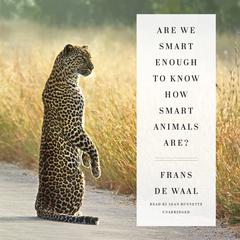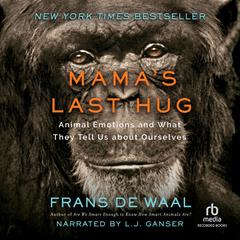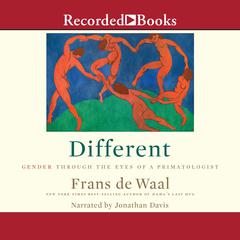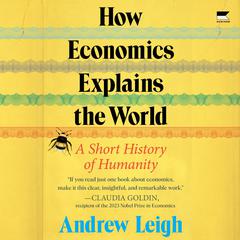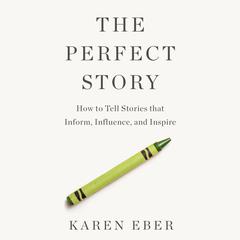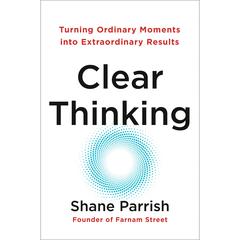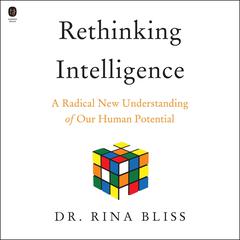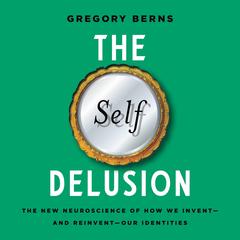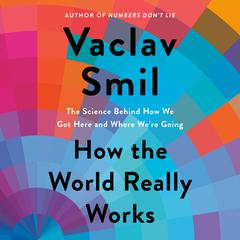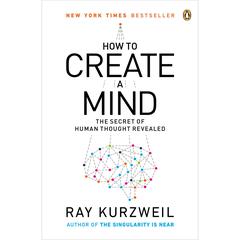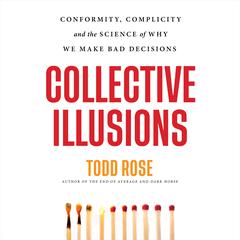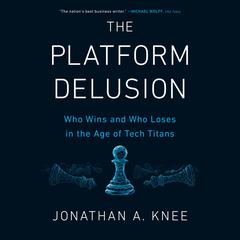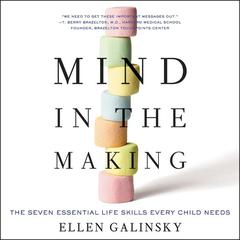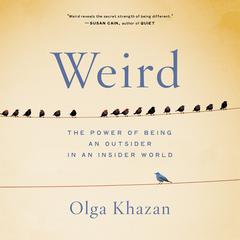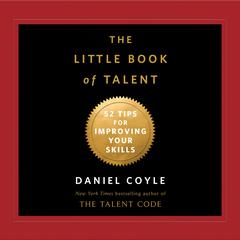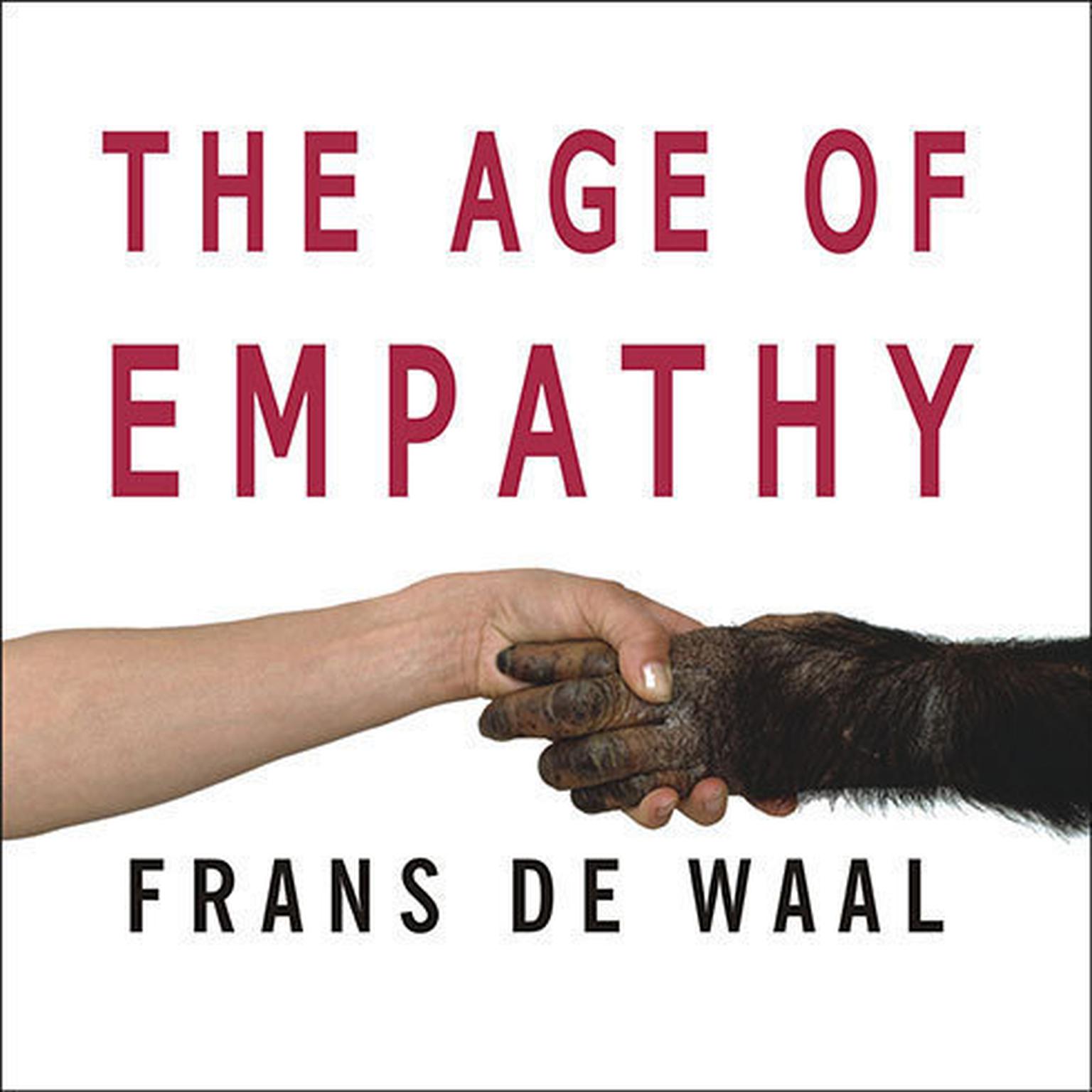 Play Audiobook Sample
Play Audiobook Sample
The Age of Empathy: Nature's Lessons for a Kinder Society Audiobook
 Play Audiobook Sample
Play Audiobook Sample
Quick Stats About this Audiobook
Total Audiobook Chapters:
Longest Chapter Length:
Shortest Chapter Length:
Average Chapter Length:
Audiobooks by this Author:
Publisher Description
Is it really human nature to stab one another in the back in our climb up the corporate ladder? Competitive, selfish behavior is often explained away as instinctive, thanks to evolution and "survival of the fittest," but, in fact, humans are equally hard-wired for empathy.
Using research from the fields of anthropology, psychology, animal behavior, and neuroscience, Frans de Waal brilliantly argues that humans are group animals—highly cooperative, sensitive to injustice, and mostly peace-loving—just like other primates, elephants, and dolphins. This revelation has profound implications for everything from politics to office culture.
Download and start listening now!
"Great read! de Waal makes compelling correlations between primate studies and our own nature. Using historical, economic and popular political culture references, shows that caring and empathy are natural to our species. Pokes holes in the rhetoric used enforce the 'survival of the fittist' standard that many use to justify acts such as war and greed. Every debate about government and society makes huge assumptions about human nature, which are presented as if they come straight out of biology. They almost never do."
— John (4 out of 5 stars)
Quotes
-
“Dr. de Waal has gathered ample evidence that our ability to identify with another’s distress—a catalyst for compassion and charity—has deep roots in the origin of our species. It is a view independently reinforced by recent biomedical studies showing that our brains are built to feel another’s pain.”
— Wall Street Journal -
Alan Sklar delivers an in-depth narration of fascinating stories about the ability of mammals to show sincere empathy.
— AudioFile -
“Freshly topical….a corrective to the idea that all animals—human and otherwise—are selfish and unfeeling to the core.”
— Economist -
“A psychology professor with proof positive that, like other creatures who hang out in herds, we’ve evolved to be empathetic…The Age of Empathy offers advice to cutthroat so-called realists: Listen to your inner ape.”
— O, The Oprah Magazine -
“Given the nature of business survival in a competitive world, de Waal’s clarion call that greed is out and empathy is in may be a call we should all hear.”
— Psychology Today -
“De Waal is an excellent tour guide, refreshingly literate outside his field, deft at stitching bits of philosophy and anthropology into the narrative.”
— Globe and Mail (Toronto)
The Age of Empathy Listener Reviews
-
" I am not sure what exactly i expected to learn from this book, but I do know it exceeded the range of topics i anticipated. It is part sociology, part neuro development, part animal behavior, part economics, part warfare, and part interesting chimp and monkey stories. It was a thought provoking read (or listen, in my case) that expanded the way I view both human and animal behavior. "
— Susanna, 2/7/2014 -
" It's true many people equate human kindness and other notions of justice, compassion and forgiveness as something separately human. Primatologist, de Waal makes an excellent case that animals too demonstrate compassion and kindness. The time of thinking 'bad' human behavior should be labeled 'animalistic' or 'wild' should now be considered a way of the past... "
— Jennie, 1/27/2014 -
" Iedereen moet kennis hebben over de intelligentie van primaten, hun samenwerking en empathie. Dat heeft consequenties hoe we met dieren omgaan. "
— Ineke, 1/26/2014 -
" This is a really great read, very interesting. I learned some seriously new things about empathy and even why we yawn. REALLY cool book. "
— Kat, 12/23/2013 -
" This book is really hard to rate. I liked this book and I love DeWaal so I feel like a dick for only giving it 3 stars, but there were so many cringeable moments that I can't in good conscious give it the 4 star ratting I would like. My big complaint is DeWaal relies so heavily on observational methods, which is very interesting and useful, but then dismisses critics (who regard observational findings as inconclusive) as big reductionistic meanies who are too un creative or tin hearted to understand that animals have empathy and are intelligent. I think almost everyone (with some notable exceptions e.g. Skinner and Ted Negent) intuitively understands that animals are intelligent and empathetic. The reason biologists and social scientists want systematic, experimentally derived evidence is because they want to understand the exact mechanisms of said phenomena (for various excellent reasons). Furthermore, DeWaal exercises every opportunity to present experimental evidence that support his claims. Beyond that, the book is discursive and disorganized, making it nearly useless as a reference for later use. The book is essentially preaching to a choir (of which I am a member). Entertaining and confirming of some good feelings, but low on hard use value. "
— Morgan, 12/15/2013 -
" A rewarding read, especially for those who wish to reach a reasonable middle ground between the half-truths of both the economically ignorant "collectivists" and the self-righteously greedy "social Darwinists". "
— J., 12/14/2013 -
" This is one of the best books i've ever read. Learning about empathetic traits that we share with other animals is compelling evidence that caring for others is adaptive and quite an old trait. I would recommend this book to any bleeding heart such as myself. "
— Sean, 2/11/2013 -
" It was hard for me to listen to this book without any bias, when I kept hearing the author make statements (often political) that I disagreed with. Although, I did thoroughly enjoy hearing about elephants. "
— Reiden, 1/12/2013 -
" (re-imagining original Star Trek series in light of man's inherent empathy....) "
— marcali, 10/24/2012 -
" The Age of Empathy is a good, light read. It gets a little political, which I could have done without even though it sounds like I mostly agree with the author. Anybody who wants to hear about apes being better people than people are without too much brain-hurt should pick it up. "
— April, 9/26/2012 -
" Listened to this audio book four times and plan to visit the primate research center. His work on empathy informs my inter-species learning theory and language theory. "
— Christie, 8/5/2012 -
" school book...aka I don't care much for it. "
— Vanessa, 7/5/2012 -
" this book had a lot of potential. unfortunately, there was a lot of discussion about research on chimps in facilities which i do not agree with. "
— Nicole, 3/23/2012 -
" Lots of interesting animal stories. Easy to read but a little long winded and redundant in places. <br/> <br/>I enjoyed it at one level but I think he diluted his own message with stretched criticisms of others (Dawkins). That distracted me from fully appreciating the book. <br/> <br/> "
— Greg, 5/8/2011 -
" Highest marks for this book. Uses examples from the animal world to reflect on human motivations.<br/><br/>Energizing and optimistic. "
— S., 11/4/2010 -
" ...values we need taught by animals. scholarly yet smooth read. (read sonetime prior to date indicated) "
— Paul, 8/31/2010 -
" It was hard for me to listen to this book without any bias, when I kept hearing the author make statements (often political) that I disagreed with. Although, I did thoroughly enjoy hearing about elephants. "
— Reiden, 5/22/2010 -
" The author takes the evolutionary cliche "survival of the fittest" and reveals it to be a shallow, oversimplification of the origin of the human species. Humans developed empathy and learned to form successful societies through cooperation, much as apes and other social animals did. "
— Florence, 2/26/2010 -
" I do think that de Waal's way of reading human ideals into animal behavior, while they make for a good book, aren't necessarily the best science. Still, it was interesting. "
— Heather, 2/16/2010 -
" A rewarding read, especially for those who wish to reach a reasonable middle ground between the half-truths of both the economically ignorant "collectivists" and the self-righteously greedy "social Darwinists". "
— J., 11/21/2009
About Frans de Waal
Frans de Waal (1948?2024) was a world-renowned primatologist who earned many awards and honoros and was named one of Time magazine’s 100 Most Influential People in 2007. He wrote several bestselling books, including Peacemaking among Primates, which won the Los Angeles Times Book Award, and Different: Gender through the Eyes of Primates, which was longlisted for the PEN/E. O. Wilson Award for Science Writing. He was C. H. Candler Professor Emeritus of Primate Behavior at Emory University and the former director of the Living Links Center at the Yerkes National Primate Research Center. He was a member of the United States National Academy of Sciences and the Royal Netherlands Academy of Arts and Sciences.
About Alan Sklar
Alan Sklar, a graduate of Dartmouth, has excelled in his career as a freelance voice actor. Named a Best Voice of 2009 by AudioFile magazine, his work has earned him several Earphones Awards, a Booklist Editors’ Choice Award (twice), a Publishers Weekly Listen-Up Award, and Audiobook of the Year by ForeWord magazine. He has also narrated thousands of corporate videos for clients such as NASA, Sikorsky Aircraft, IBM, Dannon, Pfizer, AT&T, and SONY.




